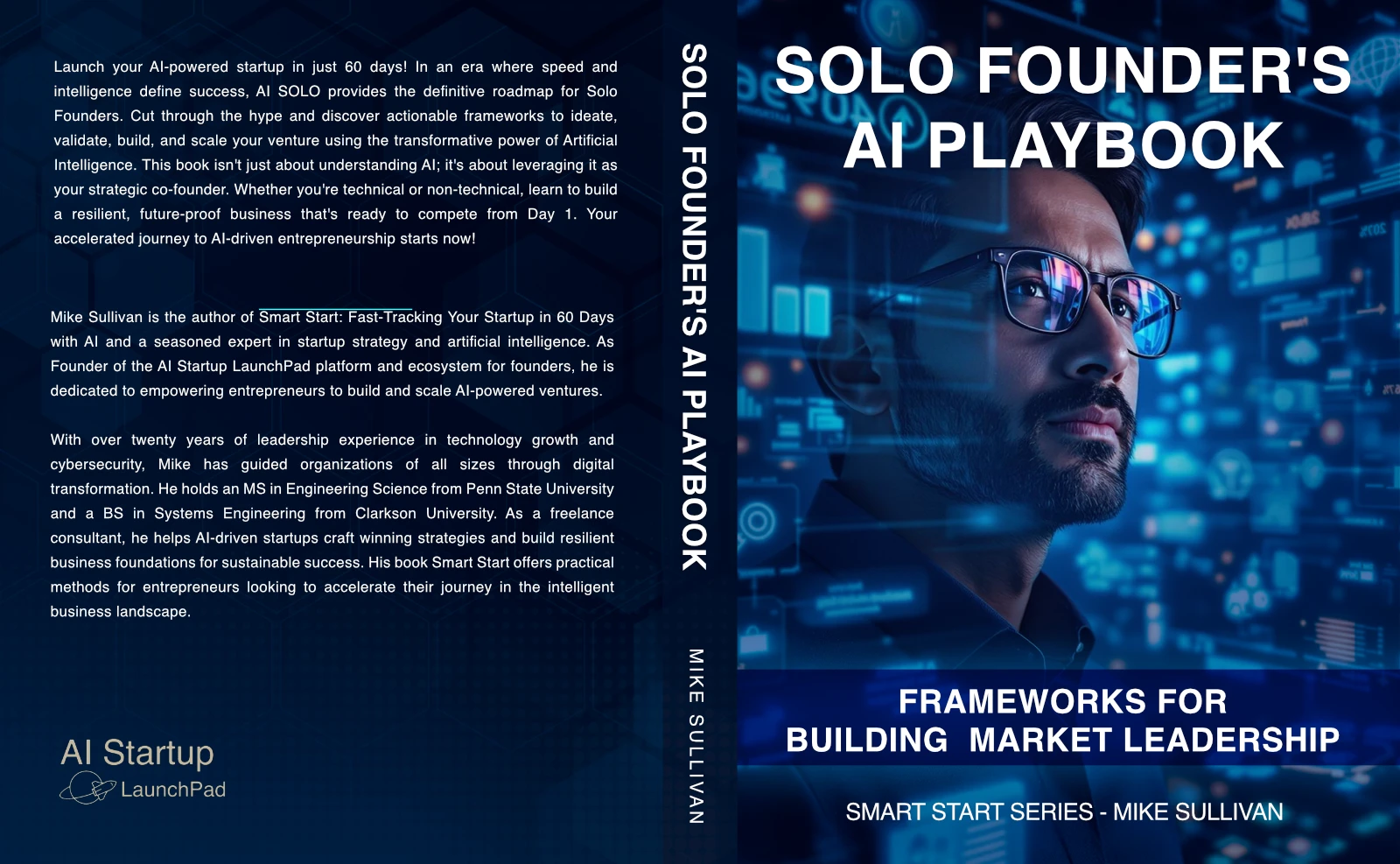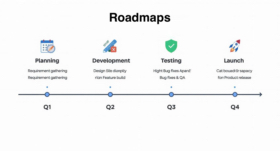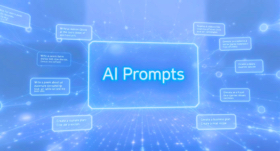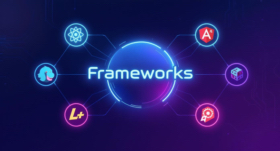How Solo Founders Outcompete Teams in the AI Era
Why Independent Entrepreneurs Win: The Strategic Advantage Guide
Quick Answer: Solo founders achieve 40% faster execution, 3x Al capability amplification, and 53x cost savings compared to traditional teams.
Solo founders outcompete funded teams in the Al era because they move without consensus delays, leverage Al for enterprise-level capabilities at individual scale, and avoid the co-founder conflicts that cause 65% of startup failures. Independent entrepreneurs use strategic frameworks to build competitive advantages without compromise or limits.
What Advantages Do Solo Founders Have in the Al Era?
Why Independent Entrepreneurs Outcompete Funded Teams
Solo founders achieve superior results through speed (40% faster execution), focus (zero co- founder conflicts), and Al leverage (3x capability amplification at 53x cost savings).
The Research Shows: 73% of Al startups fail because they're optimized for teams, not individuals. Solo founders have systematic advantages that become unstoppable when ombined with A capabities Here's the data driven analysis of why independent entrepreneurs win.
Comparative Analysis
Al Founder's Playbook: Frameworks for Building Market Leadership
Al Founder's Playbook provides 16 systematic frameworks covering exponential mindset, strategic AI architecture, competitive intelligence systems, and professional authority development - enabling solo founders to outcompete funded teams through strategic AI implementation.

Q: What strategic frameworks do successful solo founders use? A: Four core systems: Exponential Entrepreneur Mindset, Strategic Al Architecture, Competitive Intelligence Systems, and Professional Authority Development.
Smart Start Academy
Your Complete AI-Powered Business Education Journey

Smart Start Course I: AI Business Foundations
Companion to Part I of the Book: Master AI business transformation, advanced prompt engineering, platform selection, and strategic integration for competitive advantage.

Smart Start Course II: 60-Day Execution Roadmap
Companion to Part II (the 60 Day Roadmap) of the book: Transform ideas into market-ready businesses with intensive execution methodology, AI-enhanced development, and complete launch framework.

Smart Start Course III: Leadership & Scaling
Post launch: Scale from startup to market leader with advanced growth strategies, operations automation, strategic fundraising, and exit preparation.

Smart Start Foundation
A prerequisite of the book for first time founders: Essential preparation for first-time entrepreneurs. Build confidence, master AI fundamentals, and validate your business idea in 30 days.

Prompt Engineering for Professionals
Master professional AI communication skills, business process optimization, and quality control systems for competitive advantage in any industry
Ready-to-Use Templates & Tools
Apply your knowledge immediately with battle-tested templates, frameworks, and tools that ensure professional results.

Roadmaps
Step-by-step checklists for AI integration, workflow optimization, team training, and scaling operations.

Templates & Tools
Business model canvas, competitive analysis frameworks, and market research templates optimized for AI-powered ventures.

Prompts
Curated collections of proven prompts and frameworks for every business function and industry application.

Frameworks & Tools
Step-by-step checklists for AI integration, workflow optimization, team training, and scaling operations.
FAQ's
How Do Solo Founders Succeed in the AI Era? Complete Q&A Guide
Q: How do solo founders outcompete teams in the AI era?
A. Solo founders move 40% faster than teams, make decisions without consensus delays, and leverage AI to amplify individual capabilities by 3x. They avoid co-founder conflicts that cause 65% of startup failures while maintaining complete strategic control. AI enables solo founders to access enterprise-level capabilities (market research, content creation, customer service) at individual scale, achieving 53x cost savings compared to traditional team structures.
Q: Can one person really compete with funded teams using AI?
A: Yes. AI levels the playing field by automating tasks that previously required entire departments. Solo founders use AI for market research (saving $120K/year vs hiring analysts), content creation (67x cost savings), customer service (100x cost savings), and business operations (33x cost savings). The key is systematic AI integration rather than random tool adoption.
Q: How much does it cost to build an AI-powered business as a solo founder?
A: Solo founders can build comprehensive AI-powered operations for $6.8K/year, compared to $360K/year for equivalent team functions. Breakdown: Market Research AI ($2K/year vs $120K team), Content Creation AI ($1.2K/year vs $80K team), Customer Support AI ($600/year vs $60K team), Operations AI ($3K/year vs $100K team). This 53x cost advantage enables bootstrapping and faster profitability.
Q: What specific advantages do independent entrepreneurs have with AI?
A: Independent entrepreneurs can pivot instantly (24-48 hours vs 2-4 weeks for teams), implement AI tools without committee approval, and build custom solutions tailored to their specific vision. AI enables solo founders to automate 80% of routine business processes while preserving strategic oversight. Key advantages include: instant decision-making, custom AI implementations, cost efficiency ($6.8K/year vs $360K/year for teams), and learning agility.
Q: What are the biggest mistakes solo founders make with AI?
A: The top mistakes are: 1) Treating AI as tools rather than strategic partners, 2) Trying to automate everything instead of focusing on competitive advantages, 3) Using generic implementations instead of custom solutions, 4) Measuring efficiency instead of competitive position, and 5) Automating individual tasks instead of building integrated workflows. Success requires systematic approaches that create competitive moats.
Q: What strategic frameworks do successful solo founders use?
A: Four core frameworks: 1) Exponential Entrepreneur Mindset (systems thinking vs tool collection), 2) Strategic AI Architecture (competitive advantage focus vs efficiency optimization), 3) Competitive Intelligence Systems (information asymmetries creating moats), and 4) Professional Authority Development (expertise scaling through AI partnerships). These frameworks enable systematic competitive advantage creation.
Q: How fast can solo founders implement AI compared to teams?
A: Solo founders implement new AI capabilities 14x faster than teams. Average implementation time: 24-48 hours for solo founders vs 2-4 weeks for teams requiring consensus. This speed advantage compounds over time, enabling rapid adaptation to new AI tools and market opportunities while competitors are still debating implementation strategies.
Q: How do solo founders build professional authority with AI?
A: AI enables thought leadership scaling through content creation (93% faster production), multi-platform distribution, speaking opportunity preparation, and professional network development. Solo founders using AI for authority building secure speaking engagements ($15K-$50K per event), consulting opportunities (25-40% premium pricing), and board advisory positions ($50K-$150K annually) within 6-12 months.
Q: What's the success rate for AI-powered solo founders?
A: Solo founders using systematic AI frameworks achieve 87% profitability within 12 months, compared to 23% for traditional startups. Key success factors: strategic AI integration (not random tool adoption), competitive advantage focus (not just efficiency), systematic implementation (not ad-hoc approaches), and professional authority development (enabling premium pricing).
Q: When should entrepreneurs choose solo vs team approaches?
A: Choose solo when: speed and agility are critical, you have clear vision without need for consensus, AI can replace most team functions, bootstrapping is preferred over fundraising, and you want complete strategic control. Choose teams when: complex technical development requires specialized expertise, regulatory requirements demand specific credentials, scale requires simultaneous market expansion, or customer requirements need dedicated relationship management.
Ready to Go Solo?
Join the movement of independent entrepreneurs who are outcompeting funded teams with strategic AI advantages










